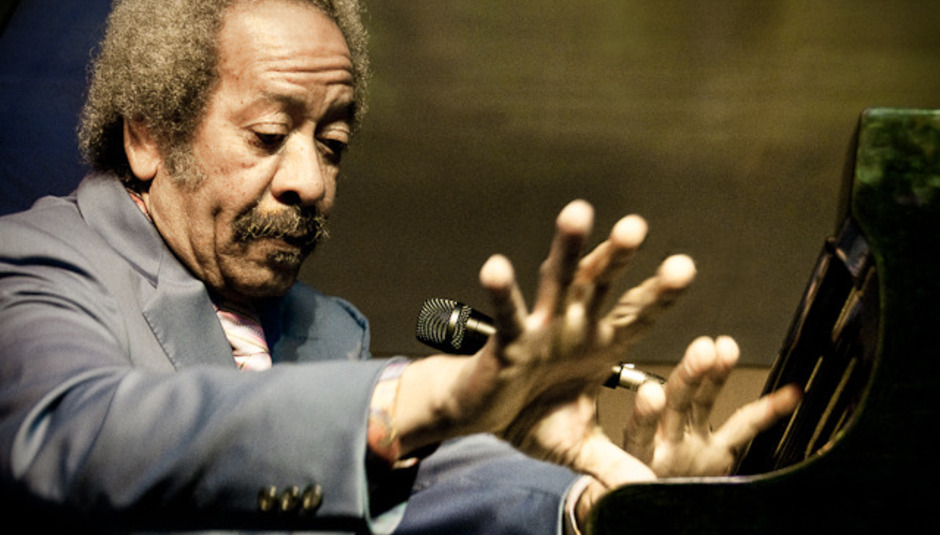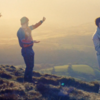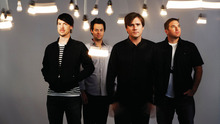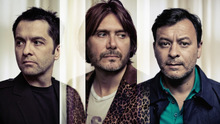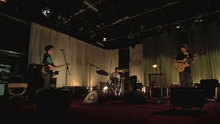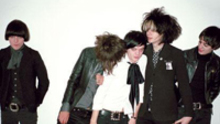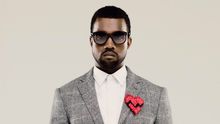Earlier this month, Drowned In Sound had the rare privilege of spending an evening in the company of Allen Toussaint, arguably one of the greatest songwriters of his generation. Playing two nights at London's famous Ronnie Scott's, remarkably his first ever appearances at the legendary venue. For an hour and forty-five minutes, Toussaint delivered an impeccable performance, showcasing over fifty years worth of timeless material culminating in a double helping of 'Southern Nights', his signature tune and most revered composition. Mellifluous and captivating throughout, recalling stories and anecdotes between songs, his graceful presence was an exemplary lesson in showmanship befitting of a true musical legend.
Born and raised in New Orleans, Toussaint has been making music since 1955, when at the age of seventeen he performed with Earl King's band. Since then, he's gone on to establish himself as a writer, producer and performer of some distinction. Having initially penned and produced hits for the likes of Irma Thomas ('Ruler In My Heart') and Lee Dorsey ('Get Out Of My Life, Woman') among many, many others.
Additionally, several artists also went on to cover a host of Toussaint's songs. Most notably The Rolling Stones ('Pain In My Heart'), The Who ('Fortune Teller'), The Yardbirds ('A Certain Girl') and Devo ('Working In A Coalmine'). His influence can also be found more recently in the world of hip hop, where the likes of Outkast ('Ain't Nothin' But A Thing' on 'We Love Deez Hoez'), Public Enemy ('Just Kissed My Baby' on 'Timebomb') and Jay Z ('Go Back Home' on 'D'evils') have used pieces of Toussaint's work to enhance their own compositions.
Also an accomplished recording artist and performer in his own right, Toussaint has released a plethora of studio albums to date, his most recent being 2009's The Bright Mississippi. Initially schooled in jazz and R&B (in its purest, rather than post-millennial form), Toussaint has also collaborated with artists from every musical genre including Paul McCartney, Eric Clapton, Elvis Costello and The Band's Levon Helm. Add to that an induction into the Rock And Roll Hall of Fame, numerous Grammy nominations and a National Medal Of Arts award from President Obama last year, it would be fair to say Alain Toussaint's status as a master of his craft is all but assured.
DiS caught up with Toussaint prior to his London shows. Here's how the conversation went...
DiS: With such a vast array of songs in your back catalogue to choose from, it must be difficult compiling a setlist for live shows. How do you go about deciding which songs to play and which to omit?
Allen Toussaint: Thank you for putting it that way. I try and think of songs that most people may know, whether they were recorded by one artist or another, as they're more likely to be the most popular. First of all. And then I like to put in a couple of new songs that I know no one knows. Since I am a songwriter I think that should be a part of my set. Also, I sometimes play a couple of songs that I didn't write which I like to perform and share my renditions of them in public with the audience.
DiS: Does the set change on a nightly basis? Do you sometimes tailor it towards the audience you're playing
Allen Toussaint: Yes, I do change the set from time to time. In fact, I change it quite a bit. There are some staple songs I always keep. There's a medley of songs that I tend to do everywhere because generally it's a guarantee that folks know those. They may be quite old but it's a medley that works.
DiS: Throughout your career you've collaborated with a host of artists including Paul McCartney, Eric Clapton, Levon Helm and Elvis Costello. Which did you enjoy working with the most?
Allen Toussaint: They were all very special in their own right. I remember when Paul McCartney came to my studio to record on the Venus And Mars album I saw what a superb producer he was. I knew that from the product he had been doing for years but actually saw him create his magic first hand. He knew what he wanted and didn't let it pass by. He deliberately set out to achieve something and didn't stop until he got there, whereas other people just hope they get it. He was wonderful to watch. It was such a luxury to work with Elvis Costello. We collaborated even more than on my short stint with Paul (McCartney). Elvis Costello is so good at everything he does. He has so much heart and soul and respect and love for all genres. He treats them all equally. If he only did one genre he'd be a giant at that but he's actually a giant in all genres of music and he respects them all equally.
DiS: That's very true considering he emerged out of London's pub rock scene in the mid-1970s which was the precursor to punk.
Allen Toussaint: He's also a very intelligent guy along with all of that soul. He has a marvellous memory and he also shares the wealth with everyone around him. When we went out on tour he made sure that every single member of his band had their moment of recognition. He's a wonderful man to be involved with.
DiS: Do you see yourself working with any of these people again? Who would you particularly like to work with in the future?
Allen Toussaint: All of them of course! However, they are so busy that it's difficult to say at this moment in time. I guess we'll always make an effort to bump into each other at some point. Elvis (Costello) and I had planned to do a brief tour in the coming year but I don't know if that was all pulled together. I'm not sure if it materialised in the way it should have done but the mere fact we were contemplating it then certainly has implications it could possibly happen in the future and is likely to at some point.
DiS: On the flipside, are there any people you've worked with that proved difficult and therefore wouldn't choose to collaborate with again?
Allen Toussaint: No. I must say that everyone I've worked with in the past I would work with again. Mainly because everyone brings something different which in turn brings something different out of me. Every person I've ever met, whether they've been superstars or newcomers to the scene has been a delight. They all bring their own signatures and I feel blessed to have worked with so many talented people so far. There's no one I can think of that I wouldn't want to do it with again.
DiS: You've had many of your songs covered by various artists including The Rolling Stones, The Yardbirds, Otis Redding and Devo. Which, if any, stands out as your favourite?
Allen Toussaint: I remember when Dobie Gray did 'Your Performance Is Almost Over'. When I heard that I thought "Yes!". It could not be bettered. I thought that was lovely. And also when Herb Alpert did 'Whipped Cream' that was a very fine production. Then there's The Grateful Dead's version of 'Get Out Of My Life (Woman)' and Robert Palmer doing 'Sneakin' Sally Through The Alley' too. What a funky job Lowell George did with him! Between them they really funkified it. I love every effort that's been put towards a song of mine, even when it went in another direction like when Devo did 'Working In A Coalmine'. I never expected Devo to even know about that song so to take it and put their own twist to it was a marvellous collaboration to me.
DiS: They really turned that song inside out to create a totally different and unexpected version.
Allen Toussaint: They sure did, way beyond my imagination.
DiS: From your perspective as a songwriter, producer and performer, which comes first? Which do you prefer the most?
Allen Toussaint: Well, performing is last on that list. But I must say that it only came about after Hurricane Katrina that I started performing nights in succession at a time. Not long tours but mini-tours. However, I must say that it's been a very important step for me to come out and taste what it's like to perform in front of a live audience. In return, the reception, feel and warmth from the audience has been totally gratifying, highly inspiring and ultimately made me better at what I do.
DiS: Touching on Hurricane Katrina, has New Orleans fully recovered now? Is everything back to normal in the city or are the repercussions still there in many ways?
Allen Toussaint: We're getting back to normal in a wonderful way! The things that were rebuilt got rebuilt so much better than they were before. And there were some things that we got so complacent about while enjoying the way New Orleans was before that if Katrina hadn't taken them away, we should have! Since Katrina, we've had to flex some muscles we never knew we had, and everyone's been up for the task which has reaped marvellous benefits. So I guess the future looks brighter than ever.
DiS: You set up the NYNO record label in 1996, primarily as a way of showcasing New Orleans based musicians and songwriters. Is the scene in the city still as vibrant? Are there any up and coming artists you'd recommend to Drowned In Sound and its readers?
Allen Toussaint: Oh yes, New Orleans will always breed wonderful music whether it's on NYNO or not. One of the latest and greatest things in New Orleans is Trombone Shorty. He's played all over the place in the last few years. He's one of the most exciting artists I've ever come across. His vision is futuristic as well as taking elements of the old tradition along with him. We also have a beautiful singer by the name of John Boutte. He has the sweetest voice in New Orleans with an immense repertoire. We also have Big Sam with the Funky Nation who's another awesome trombone player. So yeah, New Orleans is in great shape.
DiS: You've also had numerous hip hop artists including Outkast, O.D.B. and KRS-One use samples from your music to enhance their own compositions over the years. Are you a fan of their work?
Allen Toussaint: I love that. For one thing it's definitely a sign of respect to consider something that I've done can go alongside what they're about. That's quite hefty and very heartwarming for me. Also, it lets me live within that community.
DiS: I guess there are parallels to be drawn from the original Rhythm & Blues scene where you initially came from and hip hop in that the latter could be seen as an ongoing natural progression of the former, particularly where predominantly black underground music is concerned?
Allen Toussaint: Sure. It seems like a logical step, as it should be. Music has always gone somewhere, and is always somewhere at this time. But more importantly, it's always going some place else. And hip hop is a natural part of the evolution.
DiS: It's also interesting how the perception of R&B as a genre has changed over the years. Back then it was traditional Rhythm & Blues whereas nowadays it's more inclined to be used to describe slick, manufactured pop associated with the likes of Beyonce and Chris Brown. What's your take on what could be argued as the bastardisation of R&B?
Allen Toussaint: Well, they go along with the microwave era, and the press button age, and instant coffee and instant grits. It's like many things. Fast cars and mass production. As far as I'm concerned, that music is not disrespectful. It's just representative of the times we're living in. It's like I said earlier, another example of a music's evolution to somewhere else. R&B has moved on but you can hear where it came from. It's all still connected. If one wants to truly follow you could say that the links of the chain are all fully intact.
DiS: Your most recent album Songbook, which came out last year, comprised of 25 songs recorded over two nights at Joe's Pub in New York. Do you see that record as being the most definitive collection of your work to date?
Allen Toussaint: It's hard to say because the Songbook album was something I did as a solo performance at Joe's Pub. But actually, that set was something I cut my teeth on after Katrina. So when something like that gets recorded, I'm not sure how I feel about it as opposed to another night or another night or another night. Therefore it's hard to say whether Songbook's a definitive collection or not. I hope whoever purchases it might hear something in the record and hopefully care about it. But when all's said and done, that was just a performance recorded over two different nights. Even if I had to choose which of those two nights was the best I'd be struggling to make up my mind. It's hard for me to wrap my mind around what's the best approach for releases like Songbook. But I'm glad the producer Paul Siegel decided to do this project and have it out there without having to suffer the agony that I would've had to suffer while deciding what to do as I may not have put anything out.
DiS: Your last studio album The Bright Mississippi came out five years ago. Are there any plans to record a follow-up? Is your writing still as prolific now as it was when you first started out fifty-five years ago?
Allen Toussaint: Oh yes, I'm writing a lot but I must say I've fallen way back on the project with Joe Henry who produced The Bright Mississippi. He's been after me to record the follow-up for a couple of years now. I've gone in and done a few songs for him but I have so many things on the back burner. I put everything before my own product. I've really been lax about doing my own projects but Joe Henry is producing my next record. However it will be quite different to The Bright Mississippi. It won't just be golden standards. Instead it will be more off the beaten path.
DiS: Is there a projected release date for the album?
Alain Toussaint: Well, if it was left up to Joe (Henry) it would have been two years ago! I'm going to try and continue working on it after the New Orleans Jazz Festival. That lasts a fortnight and falls over the last week in April and first week in May. After that, I am planning to return to the Joe Henry project as I think it would be the proper thing to do.
DiS: You were awarded the National Medal Of Arts by President Obama in July of last year. That must have been one of the proudest achievements in your entire career?
Alain Toussaint: Well, the medal issued by the President was the biggest honour I've received in my entire career. For one thing, who could be a more suitable presenter? The President and his lovely wife were hands on. They were very sincere. It was a wonderful, classy evening. They didn't appoint someone else to give me the medal - and there were many other good people there. Herb Alpert was there, which was lovely, and many other fine people besides. I love awards, but that was the biggest and best. When I was inducted into the Rock and Roll Hall Of Fame at the Waldorf Astoria - and not just because it was there but also because of what it meant - that was hot and heavy. And the Grammy was wonderful as well, but in terms of achievements the biggest and best was receiving that medal of honour from the President.
DiS: You're playing two shows at London's legendary Ronnie Scott's venue this month. What can audience members expect?
Allen Toussaint: Well, I'm going for the songs that I hope people know. Of course there will be many old songs. My most popular era was in that genre so I'm gonna cover those. And I'm gonna be slightly intimidated because I'm in a place that I respect very, very highly.
DiS: Is this the first time you've played at Ronnie Scott's?
Allen Toussaint: Maybe at that very place but I mean in the whole of London. We respect London very highly. So many great artists and so much good music has come from that city. I'm just glad to be there.
DiS: Finally, what advice would you give to any budding songwriters, musicians or producers that are just starting out?
Allen Toussaint: What I would share with any young musicians just starting out on the scene is this: Just surround yourselves with good people wherever you can, and have a positive attitude about everything. Wherever you are there's inspiration if you just look around and be open to it. And if you can keep an inner peace about yourself I think that's a wonderful way to receive the best of what inspiration is there.
For more information on Allen Toussaint visit his official website.

